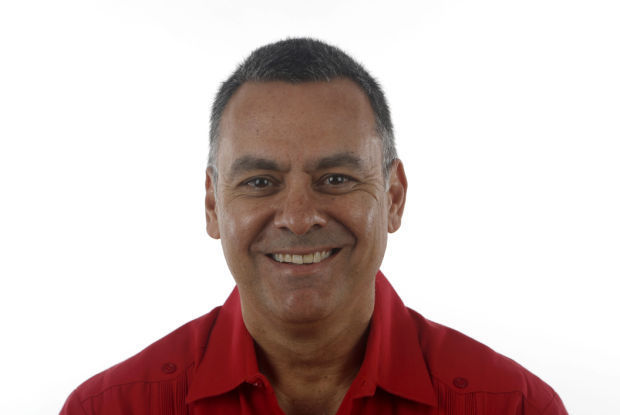Christmas came a week early for Patricia Espinosa Artiles. The unexpected gift brought her tears.
She watched President Barack Obama announce on television that the United States, her adopted country, and Cuba, her native country, will begin to re-establish formal diplomatic relations after more than 50 years of fruitless U.S. isolation of the small island 90 miles from Florida.
She was filled with emotion, with alegría, she said in Spanish. She immediately thought of her family and friends on the island, and her own journey here in the United States.
The day Obama made his historic announcement — one that was courageous, in the eyes of many people — Espinosa celebrated the 10th year of her release from an immigration detention center in El Paso. Five days before her release, on the feast day of the much venerated Virgin of Guadalupe, Espinosa had crossed from Mexico to seek political asylum.
After her freedom, Espinosa traveled to Tucson to join her partner, Maribel Alvarez.
Today she’ll make a new, joyous journey: to Cuba with her two young daughters to visit family.
Espinosa, 40, had planned her trip months before Obama revealed that both countries, long antagonists in the old Cold War, would begin to thaw out relations and create positive changes in political, economic and social engagements. What’s to come is unknown, but Espinosa is sure of one thing: “It will not be perfect, but it will be better than bad.”
Espinosa, 40, added, “I am sure that the Cuban people are happy.”
Leave the politics aside. Put away the bitter history between the two countries. Look at this through Espinosa’s eyes.
The current laws, imposed by both countries, make life difficult for Cubans in their country. The Cuban economy cannot provide basic food and necessary goods. Isolation by the U.S. has resulted in making life hard for everyday Cubans and gives the Communist government the perfect foil to deflect criticism.
“Cuba has always needed a villain, and the U.S. set itself up perfectly,” said Espinosa, whose grandparents supported Fidel Castro and the Cuban revolution.
She is critical the Castro regime, which came to power Jan. 1, 1959. There’s no freedom of expression, and political opposition is oppressed. The Internet is limited to the elite. Families, even those with professional skills, often lack enough food to go around.
If it weren’t for the money that she remitted to her mother and her brother’s family, Espinosa said they would starve. She added that while Cuba can send medical personnel to fight Ebola in Africa, Cubans cannot find bandages, aspirin, Neosporin and other basic medical items.
“I take them the things they need,” she said.
Moreover, as a lesbian, Espinosa did not have the liberties in Cuba that she has here.
Still — and she wants people to understand — Cuba’s isolation by our country failed just as much as the island’s socialist policies.
The politics have simply hurt the Cubans on the island. And the regulations here and there have made it difficult for Cubans in the U.S. to return to visit their families. While Espinosa will return with her two daughters, her newlywed partner — a University of Arizona professor born in Cuba — could not return because the Cuban government did not issue her a travel visa in time.
But all this and much more can change if the two countries seriously discard their old, unproductive ways and create a new dialogue. Cuba and the U.S. have long been intertwined. And while the U.S. has historically imposed its dominance over the small island, Cubans and Americans have deep bonds.
“Cuba and the United States are like siblings. They do not always agree, but they are connected,” Espinosa said.
As Espinosa’s charter plane approaches Cuba, she’ll take with her the optimism that Obama’s announcement implied. She’ll take it to her mother’s home in Camagüey, in central Cuba, and share it with family and friends. They in turn will share their happiness that their lives may be different and better in the near future.
“Obama has given us hope. It’s a hope to wait for change,” Espinosa said.





